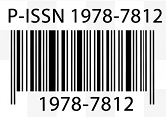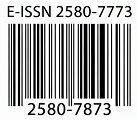KOMPARASI PRINSIP VERIFIKASI POSITIVISME LOGIS DAN PENERAPAN HUKUM QIYAS
Abstract
Abstract
The view of the logical positivism group regarding science is based on the development of exact sciences, scientific truth can be measured positively, namely the truth must be real, concrete, logical, accurate and useful, but the effect behind everything abstract and metaphysical in the dimensions of life is ignored and regardless of observation. The main idea of logical positivism that was promoted by Alfred Jules Ayer, one of which is the principle of verification. In the application of the verification principle, it can also be taken for study studies in the determination of Qiyas law, namely by analogizing a law that has not yet been stipulated in the text, by testing and observing by verifying the causes of its similarity with the established law, determining the similarity of causes with logical parameters. and also empirical. The analogy in Qiyas must go through a verification stage, namely because it must be a real and visible nature by the five senses, and logic, as well as through the empirical proof stage. According to logical positivism and qiyas, the main condition is that it must be something that is visible, and get rid of pseudo-problems.
Keywords: Logical positivism, Verification, Qiyas.
References
Al-Fayyad, Muhammad. Teologi negatif ibn ‘arabi, kritik metafisika ketuhanan. Yogyakarta: Lkis, 2012.
Ayer, Alfred Jules. Language truth and logic. New York: Dover Publication, 1952.
Bashori, Akmal. Filsafat hukum islam paradigma filosofis mengais kebeningan hukum Tuhan. Jakarta: Kencana, 2020.
Firdaus, Mu’minatus Fitriati. “Hubungan Fakta Dan Makna Pada Prinsip Verifikasi Perspektif Alfred Jules Ayer.” Arete 6, no. 1 (2 April 2018): 46–57.
Hasanah, Neneng Nur. Metodologi Studi Islam. Jakarta: Amzah, 2018.
Ibda, Hamidullah. Filsafat umum zaman now. Pati: Kataba Group, 2018.
Iqbal, Imam. “Logika Keilmuan Kalam: Tinjauan Filsafat Ilmu.” ESENSIA: Jurnal Ilmu-Ilmu Ushuluddin 16, no. 2 (1 Oktober 2015): 187–205. https://doi.org/10.14421/esensia.v16i2.997.
Khalaf, Abdul Wahab. Ilmu ushul fiqh. Bandung: Gema Risalah, 1997.
“Kitab Al-Risālah Dalam Tilikan Positivisme Hukum | Mun’im | Kodifikasia: Jurnal Penelitian Islam.” Diakses 19 Oktober 2021. https://jurnal.iainponorogo.ac.id/index.php/kodifikasia/article/view/1414.
Makiah, Zulpa. “EPISTEMOLOGI BAYANI, BURHANI DAN IRFANI DALAM MEMPEROLEH PENGETAHUAN TENTANG MASHLAHAH.” Syariah: Jurnal Hukum Dan Pemikiran 14, no. 2 (9 Januari 2015). https://doi.org/10.18592/syariah.v14i2.217.
“POSITIVISME LOGIS DALAM ‘LANGUAGE, TRUTH, AND LOGIC’ KARYA ALFRED JULES AYER: SEBUAH PANDANGAN KRITIS | Mauliansyah | SOURCE : Jurnal Ilmu Komunikasi.” Diakses 19 Oktober 2021. http://jurnal.utu.ac.id/jsource/article/view/656.
Sabri, Muhammad. Mengurai kesenyapan bahasa mistik dari filsafat analitik ke epistemologi huhuri. Jakarta: Kencana, 2017.
Sarwat, Ahmad. Qiyas sumber hukum syariat keempat. Jakarta: Lentera Islam, t.t.



_(1)1.png)















